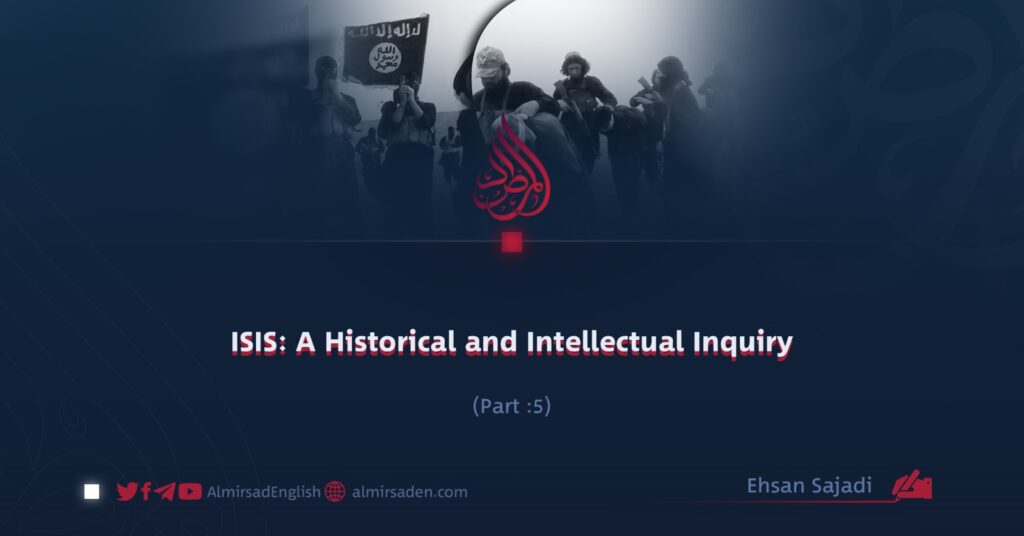Part 5
Ehsan Sajadi
3. A Critical Analysis of ISIS’s Jurisprudential Deviations: Crimes Committed under the Guise of Sharia
While ISIS proclaimed its commitment to implementing Islamic Sharia, its actions constituted one of the most egregious betrayals of Islamic jurisprudence in modern history. Through the blatant distortion of religious concepts and arbitrary interpretations of sacred texts, this deviant and regressive group projected a brutal, false, and deeply unrealistic image of Islam. In reality, Islam is a faith whose core principles are mercy, wisdom, justice, and rationality. A rigorous examination of ISIS’s conduct reveals a calculated manipulation of religious sentiment, weaponizing Islamic jurisprudence as a tool to legitimize their violence.
The foundation of ISIS’s jurisprudential deviation rests upon three central pillars: the distortion of Islamic concepts, the rejection of scholarly consensus (ijma), and the fabrication of illegitimate rulings. The group engaged in selective citation of Qur’anic verses and prophetic traditions, relying only on fragments that could be molded to serve their sinister agenda.
For instance, they invoked the verse “Fight the polytheists collectively” (Qur’an 9:36) as a pretext for indiscriminate violence against non-Muslims. This was done while disregarding the historical and contextual specificity of the verse and the consistent scholarly insistence on the strict conditions and limitations governing jihad.
In the realm of warfare, particularly concerning the treatment of civilians and prisoners of war, ISIS grossly violated established Islamic norms. From the founding imams of the Sunni schools of thought to later distinguished jurists, the consensus has been unequivocal: the killing of women, children, and non-combatant civilians is categorically forbidden. Not only did ISIS trample this well-established principle, but it also flaunted its violations with pride.
Among its most infamous innovations was the introduction of wholly un-Islamic concepts such as “jihad al-nikah”, which constituted a flagrant distortion of Islam to justify systematic moral and sexual corruption.
Another of ISIS’s major jurisprudential transgressions was the reckless and unprecedented expansion of takfir, the act of excommunicating Muslims. The group declared any Muslim who disagreed with its ideology an apostate. This was in stark contrast to traditional Islamic jurisprudence, which regards takfir as an extremely serious matter requiring precise conditions and due process.
Eminent Sunni scholars have consistently cautioned that labeling a Muslim as a disbeliever without exhaustive investigation and the fulfillment of all legal criteria is itself a grievous sin.
Even more striking is the fact that ISIS surpassed the extremism of even the most rigid Salafi scholars. Lacking the scholarly authority or qualifications for ijtihad (independent legal reasoning), ISIS formulated an entirely self-made jurisprudential framework. Their rulings, issued without the foundational requirements of knowledge, discipline, or consultation, were so unorthodox that they were rejected even by their ideological peers.
This clearly illustrates that ISIS was never genuinely concerned with enforcing Sharia. Rather, it sought to justify its unchecked violence through a fabricated religious veneer.
The destruction of cultural and historical heritage was yet another aspect of ISIS’s jurisprudential deviation. Relying on weak and even fabricated narrations, some reportedly influenced by Israeli sources, the group launched an assault on the shared civilizational legacy of humanity. This stood in direct contradiction to the position of respected Islamic scholars throughout history, who viewed the preservation of historical artifacts as part of the broader preservation of human knowledge.
Even Ibn Taymiyyah, whom ISIS frequently cited as a source of authority, never issued fatwas sanctioning such destruction.
In conclusion, it must be firmly stated that ISIS was not a representative of Islam. In truth, it was an enemy of the faith. Its actions stood in such stark contradiction to Islamic principles that even the most austere voices in Islamic thought refused to endorse them.
It is now the collective responsibility of Muslims everywhere to thoroughly expose these deviations, educate the youth, and prevent future groups from manipulating religious doctrine for violent or ideological ends. Islam is a religion of mercy, wisdom, and justice. It has no connection to the cruelty, savagery, and fanaticism promoted by the ISIS Khawarij.
